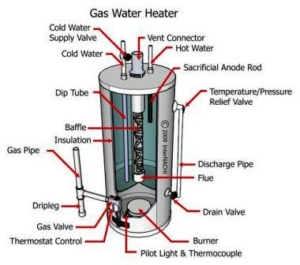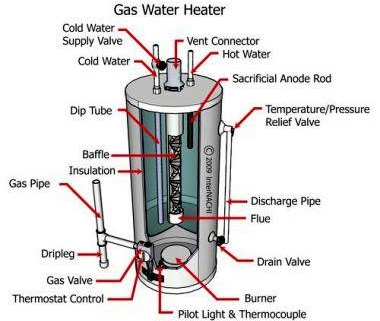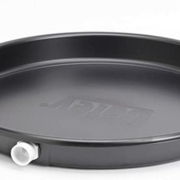Estimating the Lifespan of a Water Heater
Knowing the approximate lifespan of your water heater is essential for a homeowner. Knowing when to replace it can help avoid the expense and stress of an unexpected breakdown. Various factors, including the type of unit, the quality of the installation, and the quality of maintenance, determine the lifespan of a water heater.

Gas Water Heater
The most common types of water heaters are tankless and storage tanks. Tankless water heaters do not store hot water and use a heating element to heat the water on demand. Tankless water heaters are typically more energy efficient and have a longer lifespan than storage tank water heaters. Water heaters that are tankless usually last about 20 years.
Storage tank water heaters have a tank that stores a certain amount of hot water and use a heating element to keep the tank full. These water heaters are typically less energy efficient than tankless water heaters and have a shorter lifespan. The average lifespan of a storage-tank water heater is 8-12 years.
The quality of the installation is also a factor in determining the water heater’s lifespan. Poorly installed or incorrectly sized water heaters can cause problems such as leaks or even explosions. To ensure that your water heater is installed correctly, hiring a professional experienced with it is essential.
Maintenance is also crucial for extending the lifespan of a water heater. Regular maintenance, such as flushing the tank, checking for leaks, and replacing damaged parts, can help keep your water heater in good condition and prevent problems. Replacing the anode rod every few years can also help extend the water heater’s life.
Overall, the estimated lifespan of a water heater varies depending on the unit type, the installation quality, and the maintenance quality. Tankless water heaters typically last about 20 years, and storage tank water heaters last 8-12 years. To ensure that your water heater is in good condition, it is essential to hire a professional for installation and perform regular maintenance.







Leave a Reply
Want to join the discussion?Feel free to contribute!